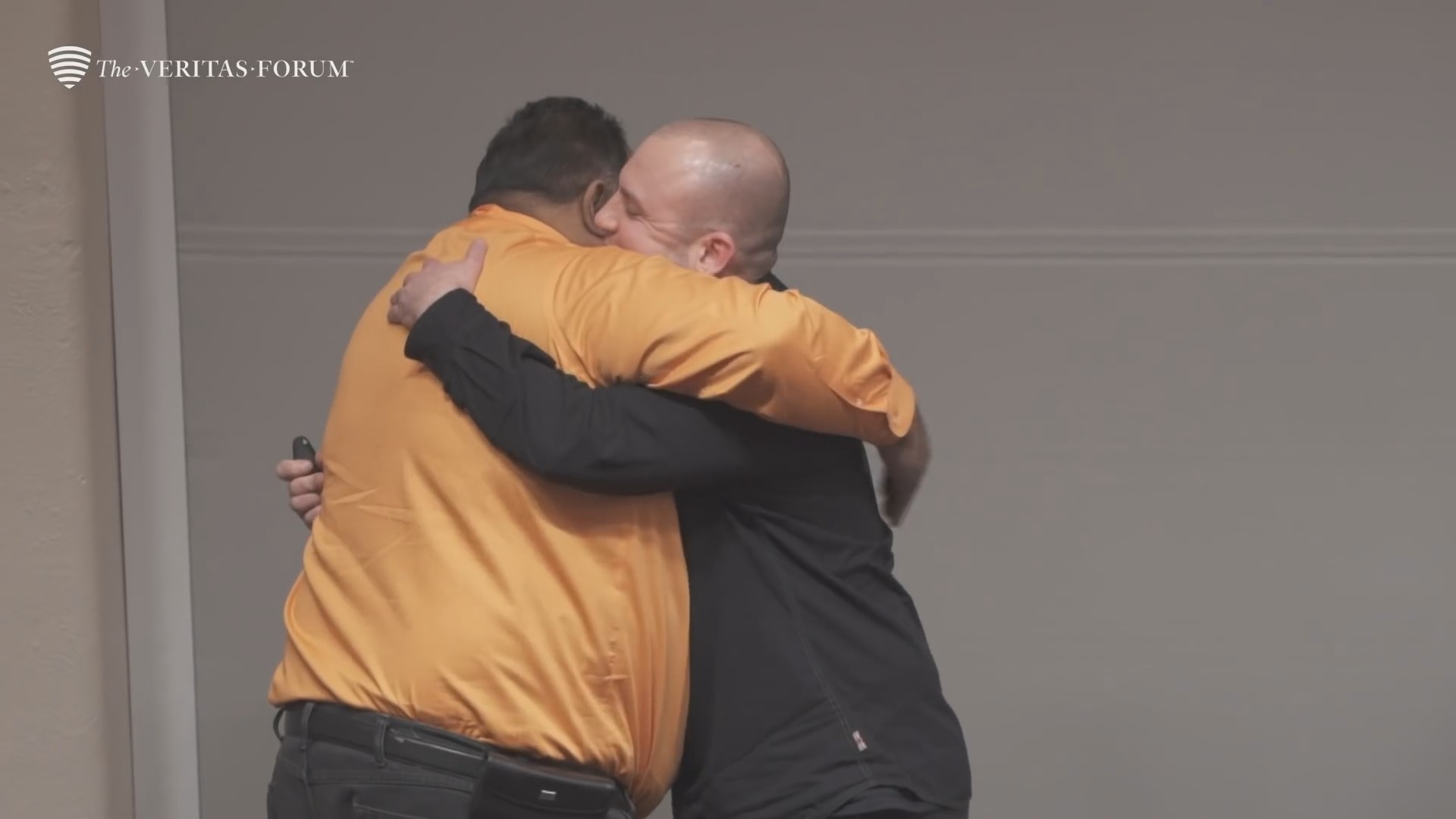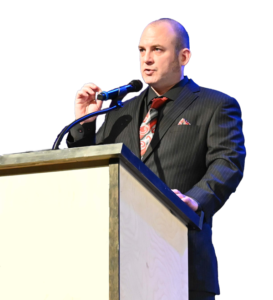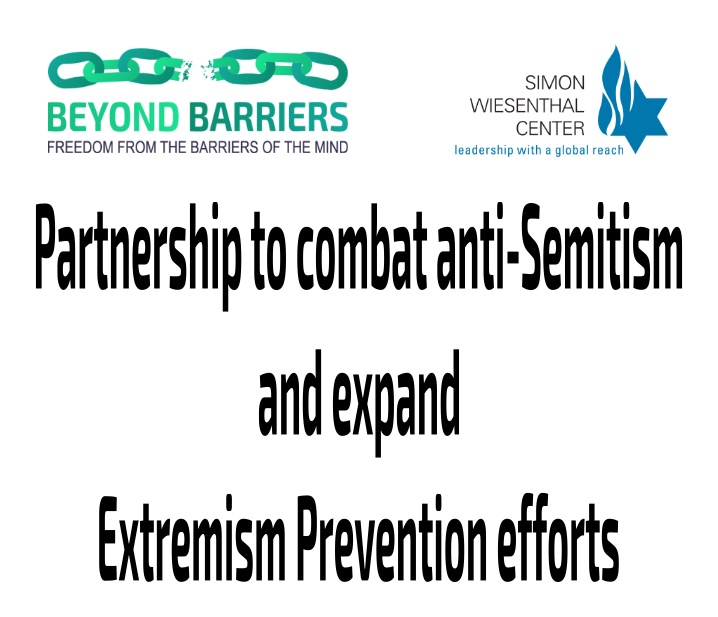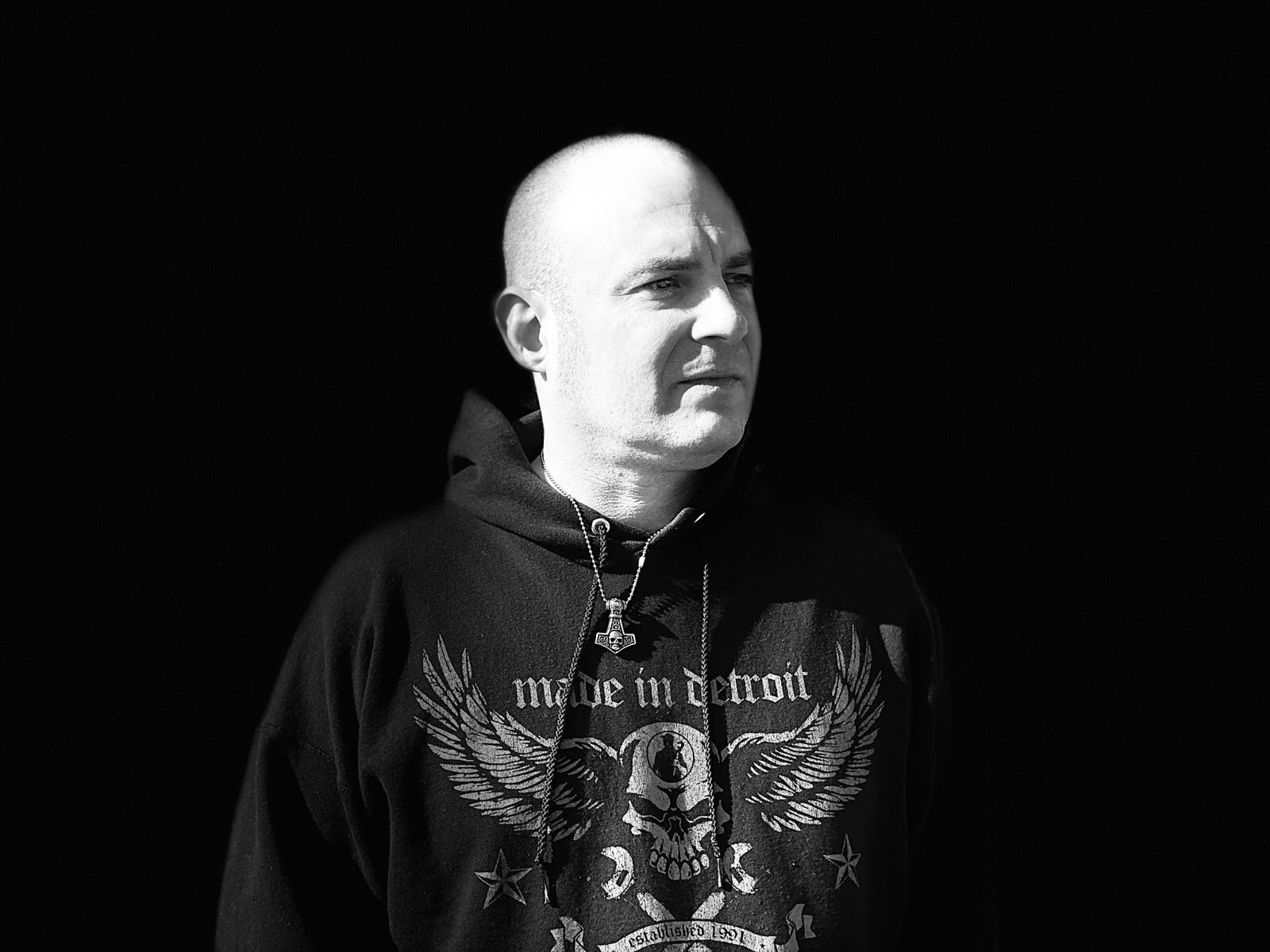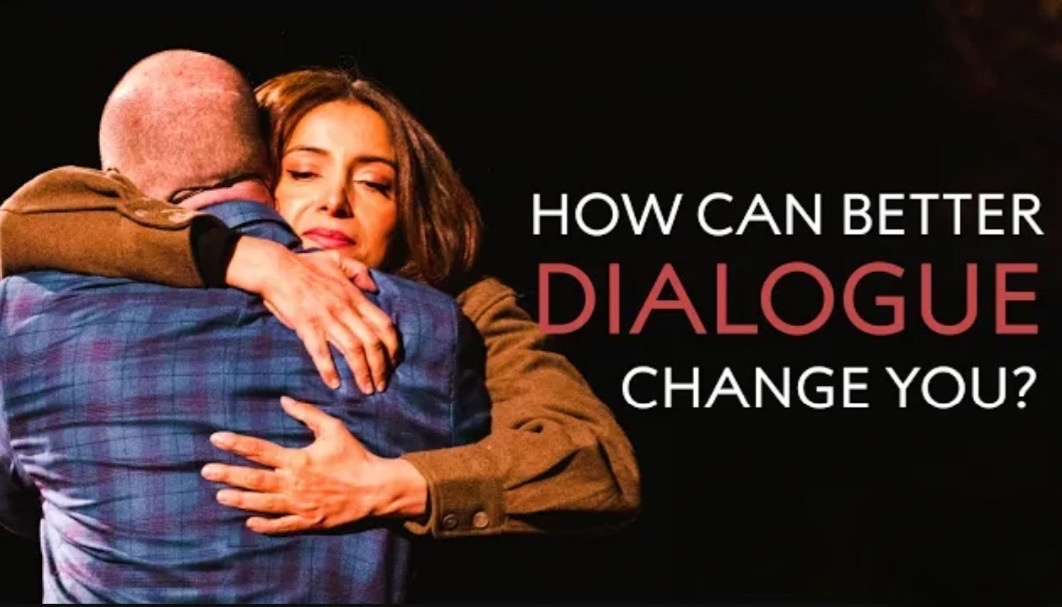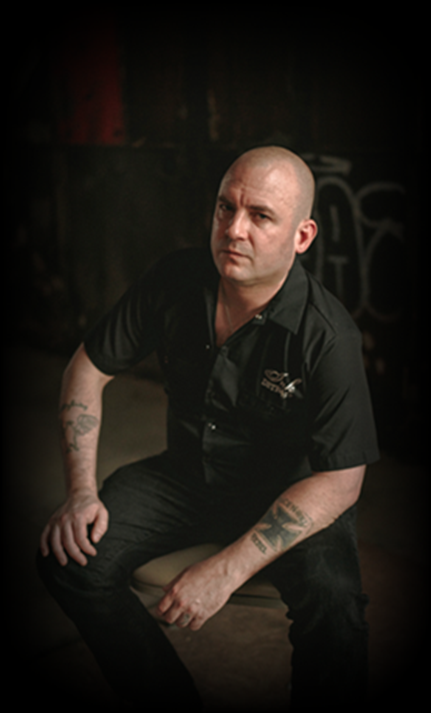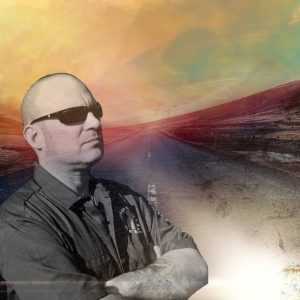If you pay attention, you will realize whatever laws govern the universe have an interesting way of shining through in times of difficulty. It was not until after I left the National Socialist Movement (NSM), having led it for over 20 years, that I realized the role small interactions can play in generating transformation in the long term. For example, one of the best people I have had the privilege to meet is Daryl Davis, an African American and therefore a member of one of the communities I once vilified. Daryl is evidence that the laws surrounding empathy and compassion can truly plant seeds of hope and change, even if their harvest is not immediately apparent.
Daryl has what some might call an ‘interesting’ hobby. For the last 30 years Daryl has been befriending members of the Ku Klux Klan. So far, he has contributed to over 200 KKK members leaving the Klan and giving up their robes. Although Daryl did not directly contribute to me realizing that my hate was misguided, his upstanding character influenced me. Most importantly, though, he has continued to confirm that most everything I believed in regarding race and ethnicity was wrong.
The first time Daryl and I met was in 2015, when he interviewed me for the documentary ‘Accidental Courtesy’. The film was about how he befriends KKK members and white supremacists. When our paths first crossed in Montgomery, Alabama, I had no idea who Daryl was or his unusual hobby. All I knew was that I was going to be interviewed for a documentary film. We filmed at Chris’ Hot Dogs, an old school music café. There were frames with various pictures of musicians all over the walls and Hank Williams used to hang out at the restaurant.
As Daryl and I started talking about music and other things, I realized that we had more in common than I initially thought. Most of the conversation revolved around music and what kinds of music we both liked. Little did I know that Daryl was quite the musician himself and that I would learn something new. After mentioning that I was a fan of rock and roll, Daryl asked me, “Do you realize that rock was invented by black musicians?” My immediate response was, “Oh we are not going to go there are we?” We both laughed a bit and then Daryl asked, “Well who invented rock then?” Immediately I thought I had this one and said “Elvis Presley.” Daryl let out a chuckle and then went on to explain to me that even Elvis Presley contributed the invention of rock and roll to black musicians such as Chuck Berry and Fast Domino. I had to give it to him, he really did know more about the history of rock than I did. This was something that had never happened before. I had never been somewhere representing the movement and have somebody know more about rock music than I did, especially not someone from ‘the other race.’
Contrary to popular belief, music plays a heavy role in right-wing extremism. That day Daryl and I found common interests. What struck me most about Daryl was his honesty. He was not only very straightforward, but also very personable. Daryl was street-smart, too.
My fiancée, at the time, accompanied me to this interview and Daryl noticed that whatever conversations we were having, she was NOT the girl to ask certain questions around. Right there it hit me: this guy was on the ball. He picked up on little things the average person would not have unless they were nuanced. I was very impressed. I remember leaving that meeting thinking, “Wow, this guy really is an incredible person.”
During the interview, he told me about what happened when he was in the Boy Scouts. Daryl was only a child when he first learned about the cruelty of racism. He was carrying a flag and marching with his all-white Cub Scout troop in a local parade, when he was struck with rocks and bottles thrown from the crowd. It was at this moment Daryl asked, “How can someone hate me when they don’t know me?”
A simple concept that one would assume literally anyone would be able to understand. That is except when you’re a neo-Nazi. Daryl explained to me how as a child it bothered him that someone hated him without even knowing him. To my surprise it bothered me as well. Yet, I tried to ignore the feeling. That is what happens when one is in an extremist movement, you try to push everyone and everything that disagrees with your preconceived notions to the side.
It was not until after leaving the movement that Daryl and I got back in touch. Around that same time a few more people were reaching out, but the way Daryl reached out to me was so… genuine. His first main concern was my personal safety and well-being. Daryl asked whether I was safe, whether I was okay. “Is there anything I can do? What are your plans? What are you doing next?” I explained to him that I was planning on speaking out and that I was hoping to get an opportunity to do so publicly. Immediately he offered to help. Daryl offered to speak to some of his contacts and told me that he wanted us to work and speak together. I really felt great about it, just the fact that he remembered me made quite the impression. After all, the only interaction between us before had been that one time when I was still in the NSM. The fact that Daryl was willing to help me find work was really meaningful. My prejudice disappeared, paving the way for gratitude and further change.
While still in the movement, I saw on the news that Daryl had gone to a sentencing hearing to support a KKK wizard, Richard Preston. This spoke volumes to me about Daryl’s character and his willingness to bend over backwards to help others.
Now, a little over a year later, Daryl was giving me hope and showing me that there was life after the movement. Daryl’s sincerity and authenticity were a wake-up call. Some of the people who were the kindest to me were those who I once dehumanized the most. I reflected on how my worst experiences had actually involved white people. This was another reminder that everything I had once thought and believed in, was really the opposite of the truth. Daryl was a human being. His kindness, compassion and unconditional love made the whole disengagement process much easier. Daryl’s support has been crucial, not just in my deradicalization, but in my personal journey in life after the movement.
When others have doubted my sincerity Daryl has vouched for me and verbalized his support of me having a public voice. For example, recently we were in Pittsburgh filming for a documentary alongside some other former right-wing extremists. The reporter asked me about accusations that I hadn’t actually left the NSM and that I was not sincere in leaving the movement. I understood the inquiry as I realize it has been a question on the minds of many. Essentially I had been the ‘boogeyman’ for different organizations for over two decades. It was only natural that not everyone, especially the general public, would understand the implications of leaving an extremist movement and speaking out against it. Leaving the movement, going quietly away, is one thing, but there is no going back when one starts speaking in opposition to the movement. It really is that serious, so accusations of insincerity can be very damaging to anyone who is trying to leave any extremist movement.
Right away Daryl spoke up claiming that I was indeed all the way out, that the accusations and comments were nonsense. Having someone like Daryl vouch for me is beyond meaningful. He understands the nuances, the difficulties of my deradicalization process and the insights that I can bring to others.
The further I continue on this journey I realize that Daryl is an example of the power behind engaging with individuals that one would otherwise demonize. I know the Klan as I have spoken with different factions of the KKK all across the country. The fact that someone of another race, like Daryl, is able to be at Klan ceremonies, that he shows respect and is respected, goes against all of their ideology and beliefs. This is not something that just any random person can achieve. Daryl certainly has a gift. What people like him are able to do is burst the bubble that one lives in when they are in a movement like the Klan or the NSM. That “bubble” is the prison of your own mind, an echo-chamber of sorts. Even if there is an African American colleague at work or a Hispanic neighbor, you dare not befriend them when engaged in the white nationalist movement. Instead, you isolate and will not give yourself a chance to get to know these other individuals. However, when individuals, like Daryl, are able to show their humanity by being themselves, it resonates. It breaks clichés better than any class, better than someone saying, “You’re wrong”.
Life experiences are the most effective tool when it comes to breaking down stereotypes and ideology. They go way further than any studies or books. Dialogue is very important, so is keeping doors open, to promote both disengagement and deradicalization. I have seen it, and so have other ‘formers’ , like myself, who left an extremist movement. Most importantly, dialogue helps break down preconceived notions regarding life outside the movement.
When I was still in the NSM and struggling with wanting to disengage, one of the misconceptions that I held was that no one in society would be willing to give me a second chance. That no one would listen or care. When you’re in an extremist movement you feel like the world is against you, and that even if you leave extremism the other side will still be vicious. You think that society will make you grovel and beg…but Daryl, of all people, showed me that was not reality. Society as a whole has been quite the opposite. Each day the truth comes out more and it’s opposite to what we were once taught in the movement. I’m learning a lot out here.
On a daily basis I am learning something new from everyone I work with, from all of those at Light Upon Light, from Daryl, from other formers. Those of us who have been part of any extremist movement were once some of the least tolerant individuals. Yet, our stories, our understanding, and our capacity to heal ourselves and others can be very inspiring. However, this is a two-way street. This journey is about giving to others, learning from others and healing with those individuals by tapping into the positive energy that comes out of even the smallest interactions with other people.
For example, Daryl and I will be speaking together soon on stage for the first time. I hope it inspires people to see that Daryl is not just an example for the klansman, the white supremacist, or the white nationalist, but that he is an example for humanity as a whole. Compassion and empathy are things we all need to learn. If everyone saw things more like Daryl, if they had that outlook and were more open and understanding, it would help erase a lot of the misconceptions and bias. Simply through dialogue and search for common ground change is possible. This is my mission now: to lay old biases and misconceptions to rest and go forward in peacebuilding.
Second, I hope to encourage others in any extremist movement or flirting with hateful ideologies to reach out. For anyone who is interested, Daryl always makes time to talk to others, as do I. We both make time for people, help them disengage and then take it from there. I am proof that you do not have to embrace Communism or become Antifa in order to have a second chance. Leaving the movement is not the end. It is a new beginning. There are others who have taken that leap, and you will not be alone.
I now honor the hand that reached out for me when I needed it by extending that hand to others who are struggling. I do so because I believe karma moves in two directions. If we act virtuously, the seed we plant will have a positive impact. I can make amends. Despite my beliefs at the time, Daryl chose to recognize my humanity and in return I showed him respect. I didn’t know it at the time, but that planted a seed of hope which eventually helped create a much unexpected friendship.
Now I ask all of you reading this article, perhaps you can reflect on a similar situation in your own life. Did you ignore the signs? Which seeds will you seek to plant in yourselves and others? They always come back around.
- This article was featured in Ctrl+Alt+Del-Hate Issue 02

